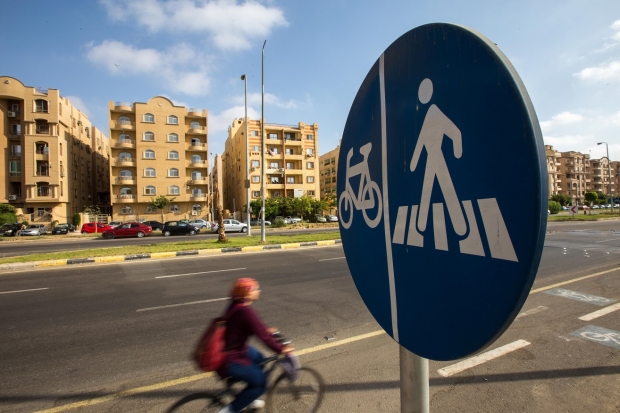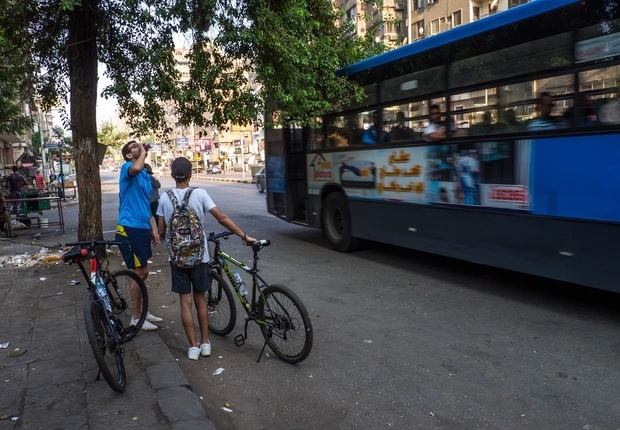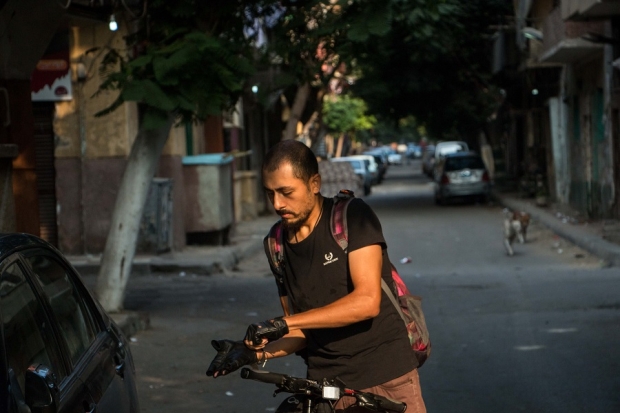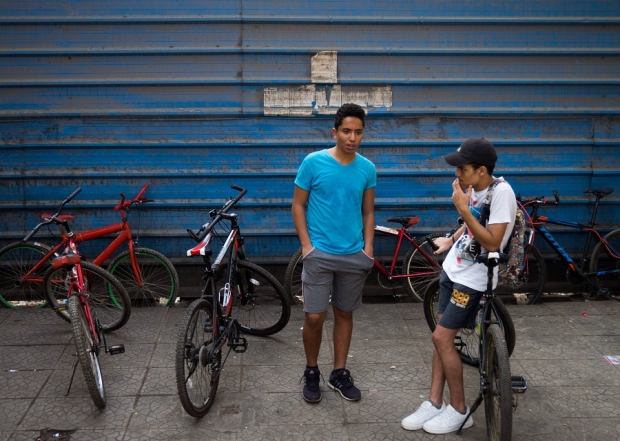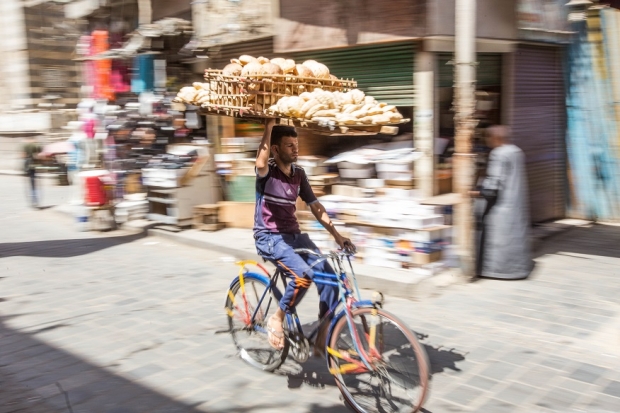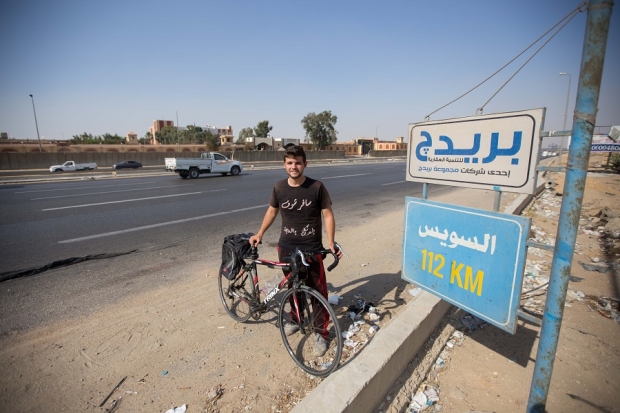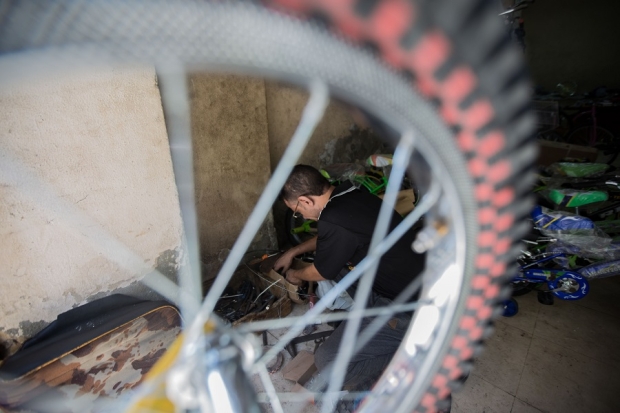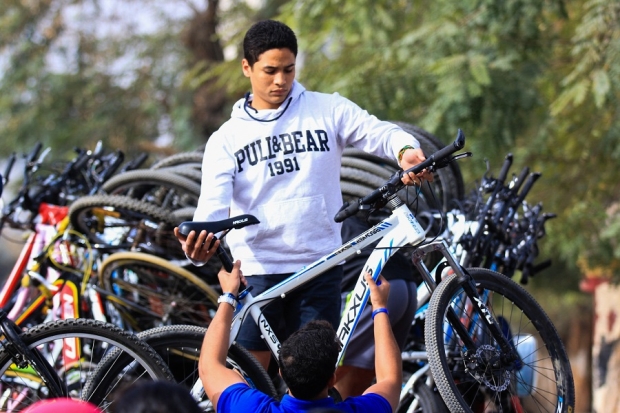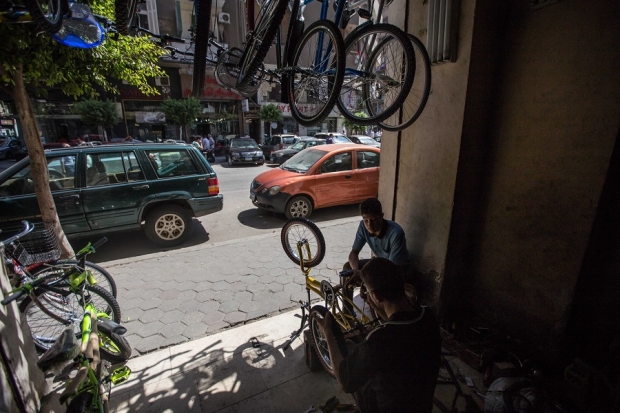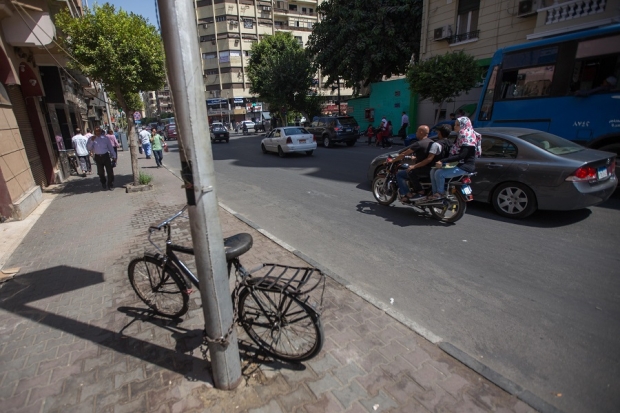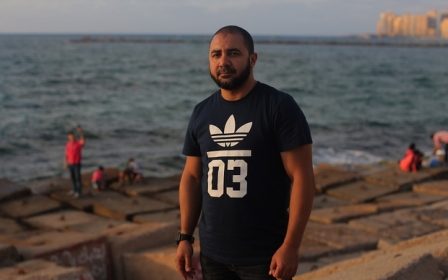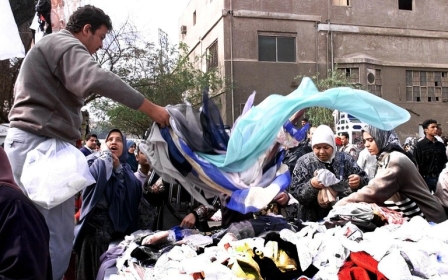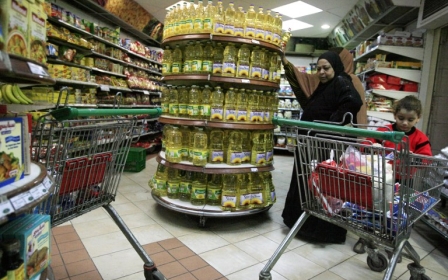Egyptians resort to cycling to bypass rising petrol prices
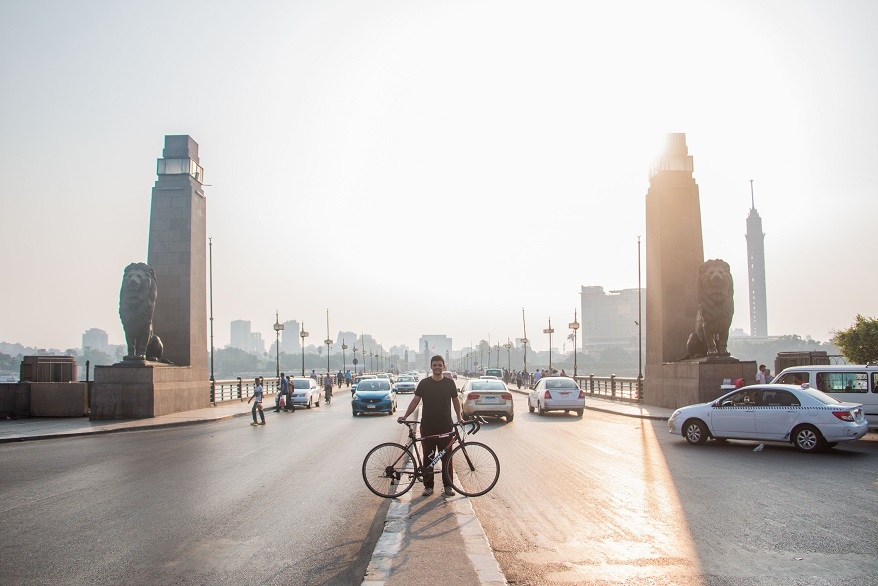
CAIRO - Fatima Maher’s commute to the educational centre where she works as an art teacher costs her $0.55 a day on a microbus – the fare hiked up from $0.38 following an increase in fuel prices in Egypt. So Maher decided to invest in a bicycle to get around the jump in prices.
Although Maher paid a hefty $142 for her bicycle, she says it was money well spent.
"I enjoy cycling,” Maher says, “and thanks to my bicycle I managed to save a lot of money I would’ve spent on transportation.”
'Thanks to my bicycle I managed to save a lot of money I would’ve spent on transportation'
- Fatima Maher, teacher
“But then again, I face harassment on whichever means of transportation I use or when I walk down the street,” she says.
“I believe women should do what they are passionate about and not pay attention to others' opinions,” she adds.
'Riding my bike every morning makes me very happy'
- Minas Younan, interior designer
In June, fuel prices in Egypt rose by up to 50 percent to help meet the terms of a $12bn IMF loan deal. With the Egyptian pound falling sharply to the dollar after Egypt decided to float its currency in November, Egyptians found themselves struggling with soaring living expenses.
A microbus ride costs him $0.60 on a daily basis. In an effort to slash his expenses, Younan also switched to cycling.
“Riding my bike every morning makes me very happy, and I am going to buy my son a bicycle as well to share this experience,” Younan says.
'I believe women should do what they are passionate about and not pay attention to others' opinions'
- Fatima Maher, teacher
But Ibrahim al-Iraqi, who owns Al-Agalaty bicycle shop in downtown Cairo, says that after the increase in fuel prices, bicycle sales went up by around 40 percent. He now sells about seven bicycles a week.
The open road
Others took up cycling as a hobby earlier on, embarking on long trips, sometimes exceeding hundreds of kilometres.
Domyati cycles to the Red Sea town of Ain Sokhna as well as Upper Egypt. Now, he says he saves over $50 on his trips otherwise spent on transportation and hotels.
While a trip from Cairo to Ain Sokhna would take three hours by bus, Domyati covers that distance in only five hours on his bicycle.
“I cycle next to large trucks and it is difficult for their drivers to see me, and this of course puts me at risk,” he says.
On overnight trips, Domyati also finds it difficult to locate a spot to camp without fending off security officers who suggest he spend the night in a hotel instead.
In order to encourage other people to take on cycling, Domyati has been documenting his travels and giving tips in videos on YouTube.
Paving the way
While cycling came to be a viable option for many, cyclists find that congested cities such as Cairo and Giza have a long way to go to embrace a cycling culture.
Over the past few years, there have been numerous efforts in Egypt to encourage cycling. Marathons are usually organised during public holidays, giving cyclists the opportunity to make their way through the otherwise jammed streets of Egypt.
In 2014, President Abdel Fattah al-Sisi took a bicycle, along with hundreds of cyclists including public figures, on a rally through Cairo. In a bid to “build Egypt” and save the country money, Sisi wanted to lead by example and cycle through the streets of Cairo himself.
For the first time in Cairo, a total of 300 bikes are set to be provided across the capital, whose locations will be determined to allow easy access to the metro and bus stations.
Bumpy rides
However, with many economic challenges facing the Egyptian government, fostering a cycling culture does not seem to be at the top of its agenda. The jammed streets of Egypt’s cities leave little room for bicycle lanes, in addition to the lax road safety regulations that should protect cyclists. Although some lanes have sprouted in different cities across the country, such as the northern government of Menufiya, Sheikh Zayed and Cairo’s Maadi neighbourhood.
A resident of the Sheikh Zayed suburb of Giza, Maher says that most of the streets in her area are equipped with bicycle lanes, but she laments that drivers do not respect these territories.
“I know that travelling by bike is hard and needs great effort,” Domyati says, “but it's fun and it's still worth it.”
New MEE newsletter: Jerusalem Dispatch
Sign up to get the latest insights and analysis on Israel-Palestine, alongside Turkey Unpacked and other MEE newsletters
Middle East Eye delivers independent and unrivalled coverage and analysis of the Middle East, North Africa and beyond. To learn more about republishing this content and the associated fees, please fill out this form. More about MEE can be found here.


